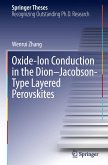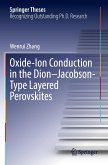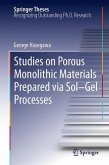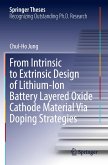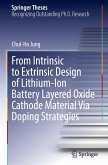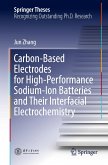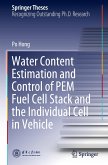This book provides detailed descriptions of strategies for improving ion conductivity and the factors that result in high ion conductivity.
In this book, discovery of novel materials that exhibit higher ion conductivity than practical materials is introduced to clarify the migration mechanism of oxide ions and protons.
The book shows that the bulk conductivity of hexagonal perovskite-related oxide Ba7Nb3.8Mo1.2O20.1 in dry air is 1.1 mS/cm at 306 °C, which is 175 times higher than that of practical materials (ZrO2)0.92(Y2O3)0.08 (8YSZ). Also, as a new approach to the subject, by ab initio molecular dynamics (AIMD) simulations and neutron-diffraction experiments, the mechanism is shown that the oxide ions migrate by the breaking and reforming of M2O9 (M = Nb, Mo) dimers, MO5 monomers and MO4 tetrahedra. The oxide-ion migration is reminiscent of a concerted push-pull interstitialcy 'bucket-relay'-type motions. Readers can understand the oxide-ion and proton migration mechanism in terms of crystal structure.
Recently, materials that exhibit high ionic conductivity have been discovered one after another.
In this book, discovery of novel materials that exhibit higher ion conductivity than practical materials is introduced to clarify the migration mechanism of oxide ions and protons.
The book shows that the bulk conductivity of hexagonal perovskite-related oxide Ba7Nb3.8Mo1.2O20.1 in dry air is 1.1 mS/cm at 306 °C, which is 175 times higher than that of practical materials (ZrO2)0.92(Y2O3)0.08 (8YSZ). Also, as a new approach to the subject, by ab initio molecular dynamics (AIMD) simulations and neutron-diffraction experiments, the mechanism is shown that the oxide ions migrate by the breaking and reforming of M2O9 (M = Nb, Mo) dimers, MO5 monomers and MO4 tetrahedra. The oxide-ion migration is reminiscent of a concerted push-pull interstitialcy 'bucket-relay'-type motions. Readers can understand the oxide-ion and proton migration mechanism in terms of crystal structure.
Recently, materials that exhibit high ionic conductivity have been discovered one after another.


